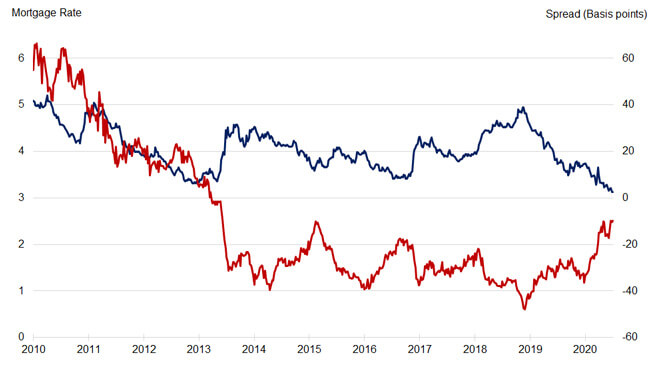Understanding Jumbo Loan: What You Need to Know for Luxury Home Purchases
Understanding Jumbo Loan: What You Need to Know for Luxury Home Purchases
Blog Article
Browsing the Jumbo Loan Landscape: Important Insights for First-Time Homebuyers
Navigating the intricacies of big finances presents an one-of-a-kind set of challenges for novice homebuyers, specifically in an advancing realty market. Comprehending the essential qualification requirements and possible benefits, along with the disadvantages, is vital for making notified choices. Additionally, establishing a solid monetary technique can substantially boost your potential customers. Engaging with specialists in the field can brighten paths that might at first seem daunting. Yet, as you check out these ins and outs, it becomes clear that a deeper understanding can disclose opportunities that may otherwise be overlooked. Exactly how can you best setting yourself for success in this specialized section of borrowing?
Understanding Jumbo Loans

Since jumbo loans are not backed by government-sponsored entities, they carry different underwriting requirements and require even more extensive monetary paperwork. This distinction can cause greater rate of interest rates compared to traditional finances, given the raised danger to lending institutions. Big fundings likewise provide unique benefits, such as the ability to fund higher-value properties and possibly much more adaptable terms.
Novice property buyers must likewise know that protecting a jumbo loan commonly demands a larger deposit, commonly varying from 10% to 20%. Furthermore, consumers are generally expected to demonstrate strong credit reliability and a secure income to qualify. Understanding these nuances can encourage novice buyers to make educated choices when exploring jumbo financing options in their search of homeownership.
Qualification Demands
Protecting a big car loan requires conference specific eligibility needs that vary substantially from those of conventional loans. Unlike conventional loans, which are commonly backed by government-sponsored entities, jumbo finances are not insured or assured, causing more stringent standards.
One main requirement is a greater credit report. Lenders commonly anticipate a minimal rating of 700, although some may enable reduced scores under certain conditions (jumbo loan). Furthermore, debtors must show a robust financial account, that includes a low debt-to-income (DTI) ratio, typically no greater than 43%. This guarantees that customers can handle their month-to-month settlements along with various other financial commitments.
Furthermore, the majority of lending institutions need considerable documents, consisting of proof of revenue, property declarations, and tax returns for the previous two years. A significant down repayment is likewise vital; while standard car loans may enable down repayments as reduced as 3%, jumbo financings often require a minimum of 20%, depending on the loan provider and the lending quantity.

Advantages of Jumbo Finances
For many novice homebuyers, jumbo lendings offer distinct benefits that can assist in the journey toward homeownership. Among the key benefits is the capacity to fund residential or commercial properties that go beyond the conforming funding restrictions established by government-sponsored entities. This versatility enables customers to access a bigger variety of high-value residential properties in affordable realty markets.
In addition, jumbo lendings commonly come with attractive rate of interest that can be reduced than those of conventional lendings, particularly for debtors with strong credit accounts. This can cause substantial savings over the life of the finance, making homeownership extra economical. Additionally, jumbo finances usually enable higher lending amounts without the demand for exclusive home mortgage insurance policy (PMI), which can further decrease overall costs and monthly settlements.

Prospective Downsides
Several potential homebuyers might discover that big fundings included significant drawbacks that warrant careful factor to consider. Among the key worries is the rigid credentials standards. Unlike adapting loans, big car loans generally need higher credit history, commonly exceeding 700, and considerable income documents, making them much less available for some customers.
In addition, big fundings typically feature greater rate of interest compared to conventional loans, which can bring about boosted monthly settlements and overall loaning expenses. This costs may be specifically difficult get redirected here for first-time homebuyers that are already browsing the financial intricacies of purchasing a home.
One more notable disadvantage is the larger deposit requirement. Lots of lenders expect a minimum deposit of 20% or more, which can posture a difficulty for customers with limited cost savings. Furthermore, the lack of federal government backing for jumbo loans results in much less beneficial conditions, increasing the find more information danger for lending institutions and, consequently, the loaning prices for homeowners.
Lastly, market changes can substantially influence the resale worth of high-end residential properties funded with big financings, adding a component of financial unpredictability that newbie homebuyers may find daunting.
Tips for First-Time Homebuyers
Navigating the complexities of the homebuying process can be overwhelming for first-time buyers, particularly when thinking about jumbo fundings (jumbo loan). To streamline this journey, adhering to some essential techniques can make a considerable difference
First, educate yourself on big lendings and their particular requirements. Understand the different lending standards, consisting of credit report, debt-to-income proportions, and down settlement assumptions. Usually, a minimum credit rating of 700 and a deposit of a minimum of 20% are necessary for authorization.
Second, involve with an educated home loan expert. They can provide understandings customized to your financial scenario and aid you navigate the complexities of the jumbo car loan landscape.
Third, consider pre-approval to strengthen your investing in setting. A pre-approval letter signals to sellers that you are a significant purchaser, which can be advantageous in affordable markets.
Finally, do not ignore the value of budgeting. Consider all costs linked with homeownership, including real estate tax, upkeep, and property owners' insurance coverage. By adhering to these tips, novice buyers can come close to the jumbo financing process with better self-confidence and clearness, improving their possibilities of effective homeownership.
Conclusion
To conclude, navigating the jumbo funding landscape requires an extensive understanding Resources of eligibility requirements, advantages, and prospective disadvantages. First-time homebuyers can enhance their chances of success by preserving a strong credit history score, managing their debt-to-income proportion, and getting ready for bigger deposits. Involving with experienced home mortgage professionals and getting pre-approval can additionally enhance placements in competitive markets. Inevitably, complete preparation and education and learning regarding big financings can cause even more informed decision-making in the homebuying process.
When browsing the complexities of the housing market, recognizing jumbo fundings is essential for first-time buyers aiming for buildings that exceed traditional loan limitations. Big lendings are non-conforming fundings that typically exceed the adapting financing limit set by the Federal Housing Financing Firm (FHFA)In addition, big lendings typically come with eye-catching passion prices that can be reduced than those of traditional car loans, particularly for debtors with solid credit score accounts. Big loans generally allow for higher lending amounts without the need for private mortgage insurance (PMI), which can even more decrease regular monthly payments and overall costs.
Unlike adapting financings, big finances normally need higher credit history scores, often going beyond 700, and significant earnings documentation, making them less obtainable for some debtors.
Report this page